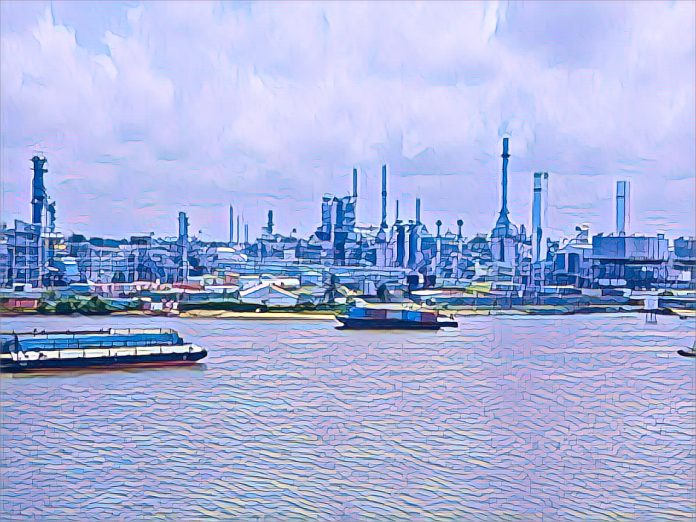A looming fuel shortage in Nigeria has been attributed to vessels trapped in the Escravos Channel, carrying approximately 150 million litres of petroleum products. This predicament has raised concerns about potential disruptions to the country’s fuel supply chain, exacerbating existing challenges in the energy sector.
The vessels, laden with fuel, have been unable to offload their cargo due to shallow waters in the Escravos Channel, hindering their passage to delivery points. As a result, the distribution of petroleum products, particularly gasoline, has been impeded, leading to fears of fuel scarcity in various parts of Nigeria.
The situation has underscored the vulnerability of Nigeria’s energy infrastructure and the need for investments in port infrastructure and navigational channels to facilitate smooth operations in the oil and gas sector. Delays in vessel operations not only affect fuel availability but also have broader implications for the economy and livelihoods of Nigerians.
Fuel scarcity in Nigeria is not a new phenomenon and has been attributed to various factors, including inadequate refining capacity, smuggling, and distribution challenges. However, the current situation highlights the vulnerability of the country’s energy supply chain and the need for proactive measures to address bottlenecks and vulnerabilities.
Stakeholders in the energy sector are calling for swift action to resolve the issue and prevent disruptions to fuel supply. This includes dredging the Escravos Channel to improve navigability, enhancing coordination among relevant agencies, and exploring alternative routes for fuel delivery to mitigate future risks.
Despite the challenges posed by the trapped vessels and potential fuel scarcity, there is optimism that with coordinated efforts and strategic interventions, Nigeria can overcome the current crisis and build a more resilient energy sector. By addressing infrastructure constraints and enhancing operational efficiency, the country can safeguard against future disruptions and ensure stable fuel supply for its citizens.
Source: BusinessDay Nigeria



